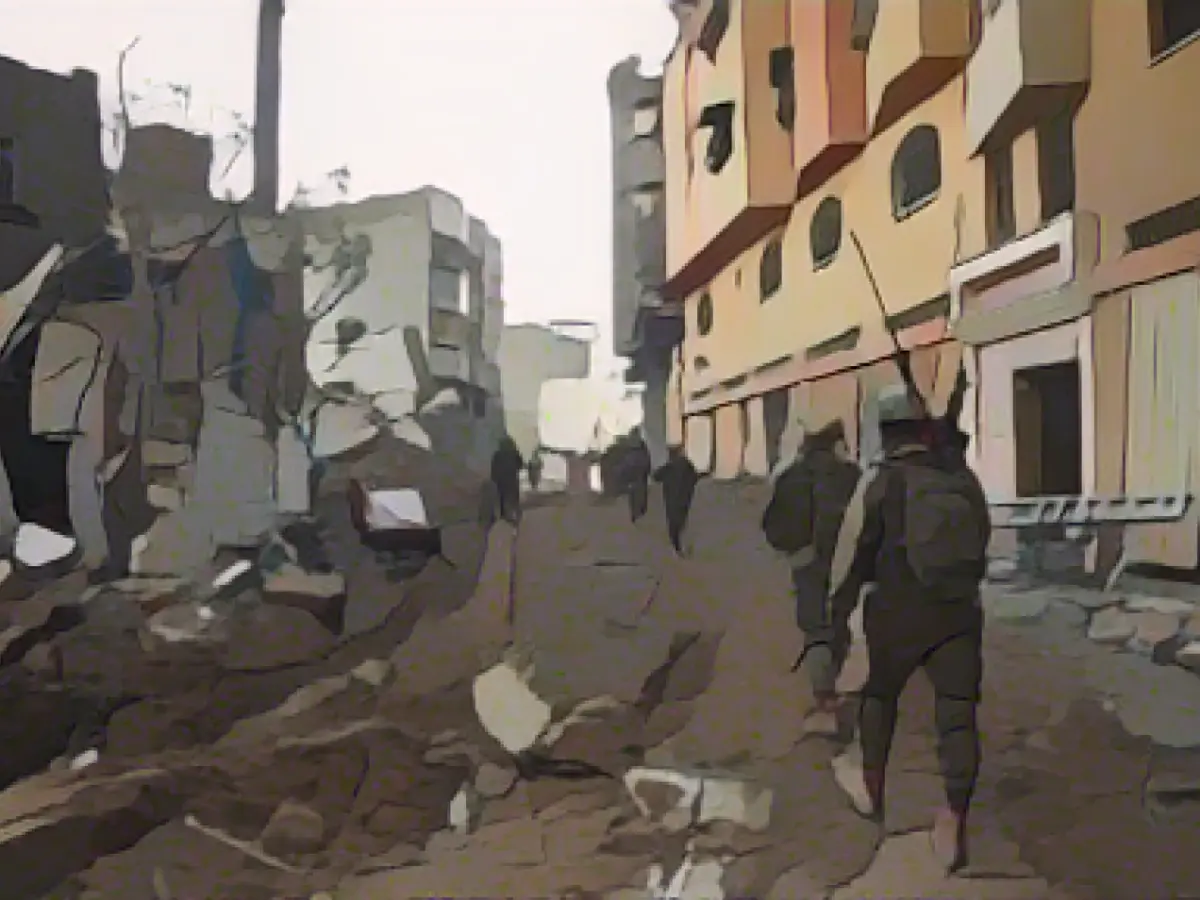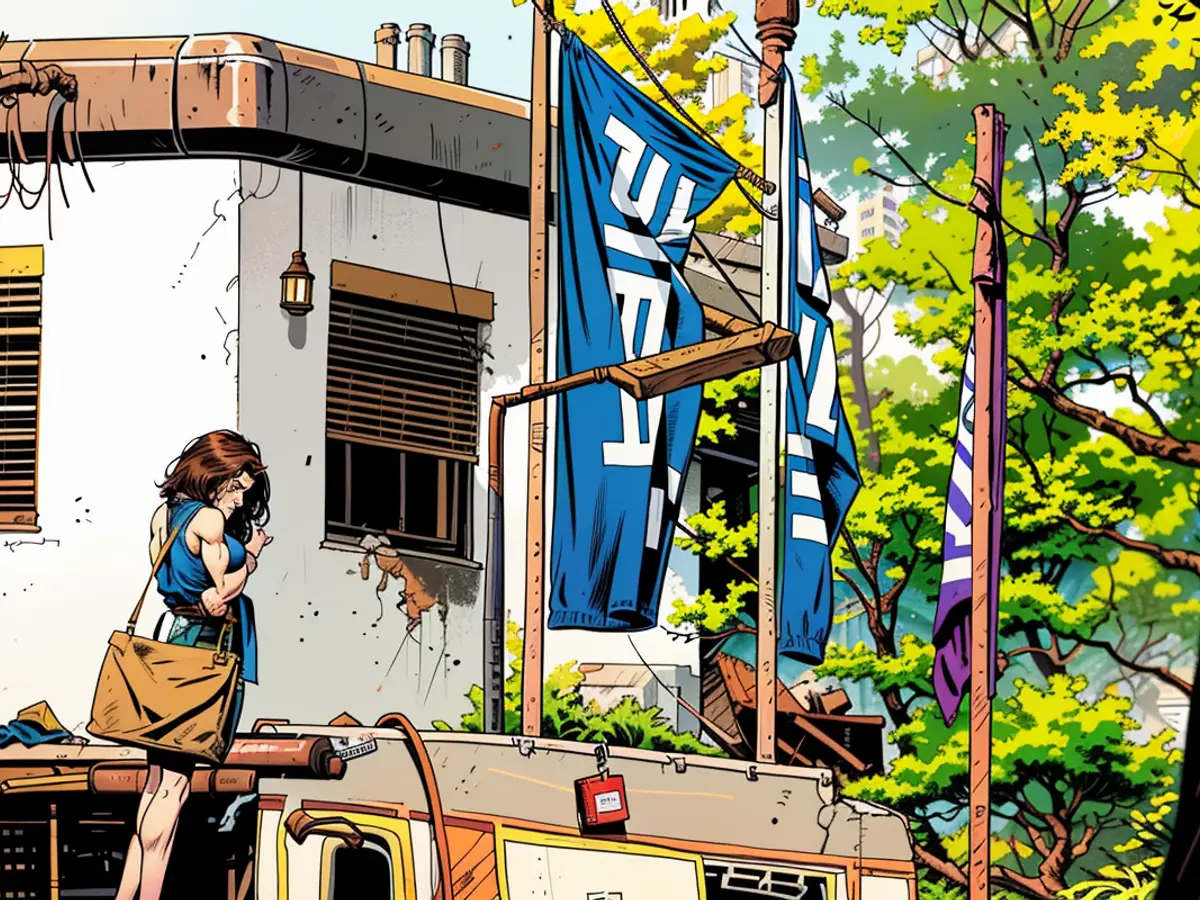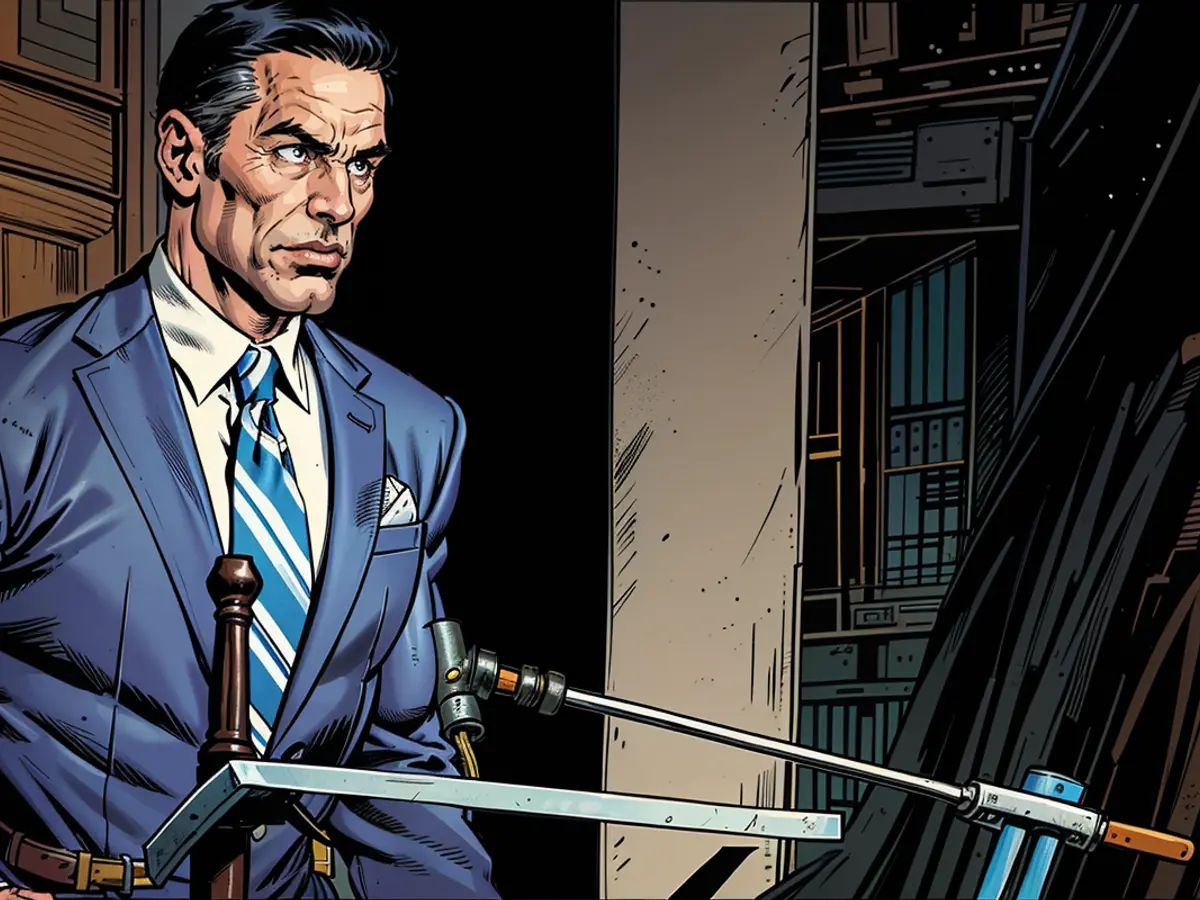Israel continues attacks on Gaza Strip despite calls for ceasefire
The draft resolution submitted by the United Arab Emirates, which the UN Security Council wanted to discuss on Tuesday, calls for an "urgent and permanent cessation of hostilities" in the Gaza Strip in order to allow "safe and unhindered humanitarian access" to the largely sealed-off Palestinian territory.
The vote was originally due to take place on Monday. According to the AFP news agency, it was postponed to allow for further negotiations and to avoid a possible veto.
On December 8, the adoption of a UN resolution for an "immediate humanitarian ceasefire" failed due to a veto by the USA. Security Council resolutions are binding, but are regularly ignored by the countries concerned. Israel rejects a ceasefire.
The US government initially left open whether it would agree to the latest draft resolution. "We always try to find a wording that we and the other members of the Security Council agree with," said State Department spokesman Matthew Miller.
Earlier, during a visit to Tel Aviv, US Defence Secretary Austin had held out the prospect of further arms deliveries to Israel, but at the same time emphasized the need to reduce "damage to the civilian population". "We must provide more humanitarian aid for the almost two million displaced people in the Gaza Strip and distribute this aid better," said Austin.
The Israeli attacks on the Gaza Strip were triggered by an unprecedented large-scale attack by Hamas on Israel on October 7. Hundreds of fighters from the Palestinian organization, which is classified as a terrorist organization by the USA and the EU, had infiltrated Israeli towns and committed atrocities against civilians. According to Israeli reports, around 1140 people were killed and around 250 others were taken hostage in the Gaza Strip.
In response, Israel began attacking targets in the Gaza Strip and launched a ground offensive. According to the Hamas-controlled Ministry of Health, which cannot be independently verified, more than 19,660 people have been killed so far.
Despite international calls for an end to the fighting, Israel continued its attacks in the Gaza Strip. At least 20 Palestinians, including four children and a journalist, were killed in overnight shelling of the city of Rafah in the south of the Gaza Strip, according to the health authority controlled by the radical Islamic Hamas. AFP reporters also reported attacks on the towns of Chan Junis and Gaza.
Meanwhile, the Israeli military reported the discovery of explosives in a hospital in Shujaiya, a suburb of the city of Gaza. It also declared that it had destroyed Hamas tunnels and killed fighters.
In Tel Aviv, people had to flee to safety due to renewed rocket fire by Hamas from the Gaza Strip.
The director of the Al-Ahli Arab Hospital in Gaza explained that the clinic had ceased operations after being stormed by the Israeli army. "Neither patients nor injured people" could be admitted, he told AFP.
Israel accuses Hamas of having set up military infrastructure in hospitals in the Gaza Strip and abusing civilians as "human shields". The Palestinian organization rejects this.
After a two-week stay in the Gaza Strip, the spokesman for the children's charity Unicef, James Elder, reported that the Nasser Hospital in Chan Junis had also been bombed twice within 48 hours. The Gaza Strip is the "most dangerous place in the world" for children, emphasized Elder in Geneva. He was "furious that those in power just shrug their shoulders in the face of the humanitarian nightmares inflicted on a million children".
Meanwhile, Qatar said on Tuesday that there were "ongoing diplomatic efforts to renew a humanitarian pause" in the Gaza Strip. Hamas declared that it was prepared to exchange prisoners, "but only after a ceasefire".
Alongside the USA and Egypt, the Gulf state played a key role in mediating a ceasefire between Israel and Hamas in November that lasted several days. In this context, around one hundred Israeli hostages were released at the end of November. In return, Israel released 240 Palestinian prisoners from the prisons.
Read also:
- This will change in December
- Attacks on ships in the Red Sea: shipping companies avoid important trade route
- Houthi rebels want to launch further attacks despite international coalition
- USA forms military coalition against Houthi attacks on ships in the Red Sea
Source: www.stern.de








